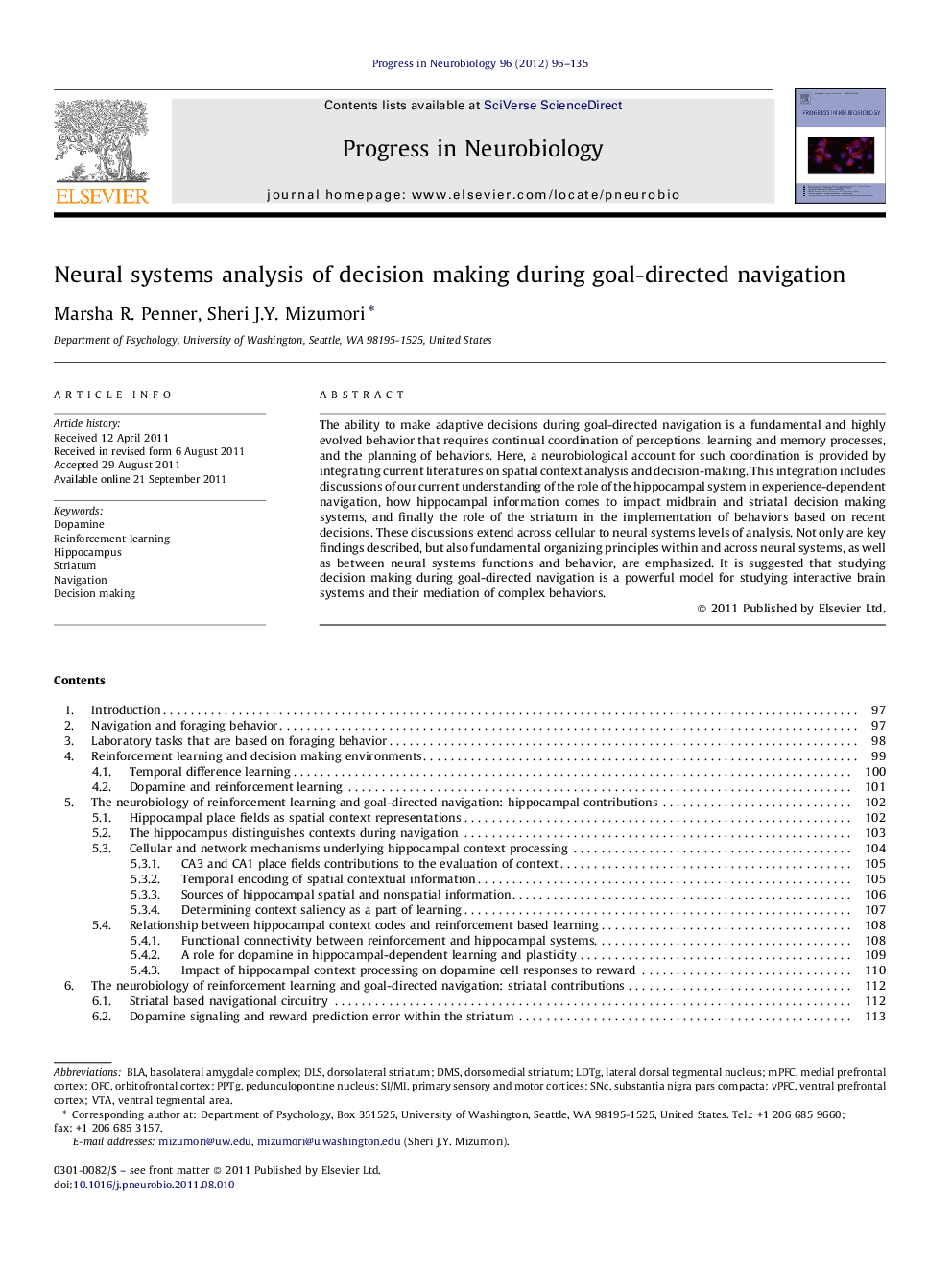| Article ID | Journal | Published Year | Pages | File Type |
|---|---|---|---|---|
| 6286630 | Progress in Neurobiology | 2012 | 40 Pages |
Abstract
The ability to make adaptive decisions during goal-directed navigation is a fundamental and highly evolved behavior that requires continual coordination of perceptions, learning and memory processes, and the planning of behaviors. Here, a neurobiological account for such coordination is provided by integrating current literatures on spatial context analysis and decision-making. This integration includes discussions of our current understanding of the role of the hippocampal system in experience-dependent navigation, how hippocampal information comes to impact midbrain and striatal decision making systems, and finally the role of the striatum in the implementation of behaviors based on recent decisions. These discussions extend across cellular to neural systems levels of analysis. Not only are key findings described, but also fundamental organizing principles within and across neural systems, as well as between neural systems functions and behavior, are emphasized. It is suggested that studying decision making during goal-directed navigation is a powerful model for studying interactive brain systems and their mediation of complex behaviors.
Keywords
Ventral prefrontal cortexPPTgLDTgOFCBLASNCDMSVTADLSMPFCdorsolateral striatumdorsomedial striatumStriatumDecision makingsubstantia nigra pars compactaDopamineorbitofrontal cortexmedial prefrontal cortexventral tegmental areaNavigationPedunculopontine nucleuslateral dorsal tegmental nucleusHippocampusReinforcement learning
Related Topics
Life Sciences
Neuroscience
Neuroscience (General)
Authors
Marsha R. Penner, Sheri J.Y. Mizumori,
